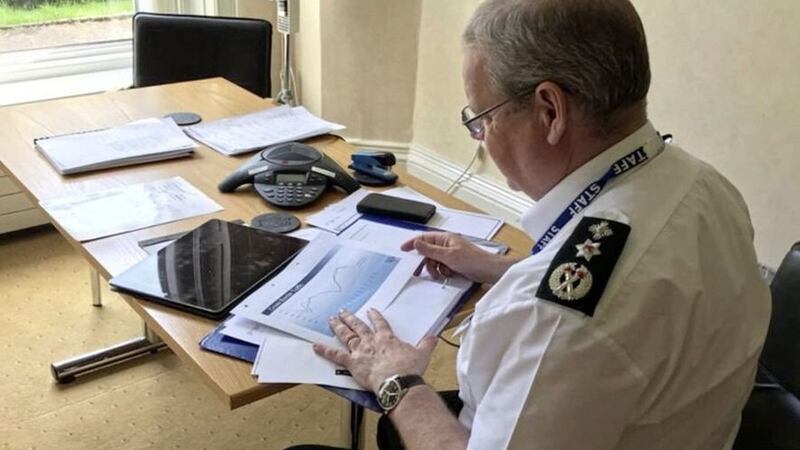Police in Northern Ireland do not have the resources to deal with the outstanding caseload of unsolved Troubles cases, the region’s chief constable has warned.
Simon Byrne told MPs it would take 20 years to review the thousands of outstanding legacy cases with current funding and staffing levels.
But he said he would be extremely cautious about a Government proposal to shut down or close off the prospect of future prosecutions in the majority of cases.
Giving evidence to the Northern Ireland Affairs Committee, he said the resourcing challenge was not just about money.
The commander said the PSNI would struggle to find enough detectives to do the work, as there was a shortage of such officers across the UK.
“I certainly think that there are really, really difficult issues for us to resolve,” he said.
“I would always try to remain an optimist but I don’t think it’s deliverable within the current resource base that we have.”
Mr Byrne also highlighted the huge task police faced to digitise the case archive, which includes 95 tonnes of hard copy evidence and 44 million items of intelligence data.
He said two-thirds of the PSNI’s current £30 million annual legacy funding was spent resourcing coroners’ inquests and civil litigation.
The police chief was giving evidence to the committee on the Government’s latest plans for dealing with historic cases.
In March, Northern Ireland Secretary Brandon Lewis announced that only Troubles killings with “compelling” new evidence and a realistic prospect of prosecution would receive a full police re-investigation.
The Government said that, after a review, most unsolved cases would be closed and a new law would prevent those investigations from being reopened.
Mr Byrne told the committee he had yet to see any detail on the Government proposals, noting that neither Mr Lewis nor his predecessor Julian Smith had discussed the plans with him.
He said he was “surprised” that his organisation was not briefed about the plan before it was announced.
Mr Byrne expressed broad concern that the PSNI does not have the resources to complete case reviews and re-investigations in a timely manner.
He also highlighted the challenges the police faced in taking on historic investigations that often saw their impartiality questioned.
The Government’s statement in March marked a significant step away from mechanisms agreed by the UK and Irish governments and main Stormont parties in the 2014 Stormont House Agreement.
The Stormont House proposals included a new independent investigation unit to re-examine all unsolved killings.
While details have yet to be fleshed out, the thrust of the new plan places less emphasis on criminal re-investigations and more on information retrieval for families still seeking answers.
Mr Byrne said it was still not clear whether the Stormont House model would be discontinued, but the problem of finding enough detectives to take on the work would stand whether the PSNI retained responsibility for the probes or it was handed to an independent unit.
“Whether it’s us, or any other body, I think practically, purely on the detective capacity side, I’m not sure how you actually square the circle and meet the desire to bring a criminal justice resolution to people with the resource base we’ve got to do it in a timely and effective manner,” he said.
Former Bedfordshire police chief Jon Boutcher, who has been commissioned by the PSNI to take on a number of sensitive historic Troubles investigations, also gave evidence to the committee.
Ahead of his appearance, SDLP MP Claire Hanna asked Mr Byrne whether he agreed with Mr Boutcher’s previously stated position that any proposal to close down murder investigations should be approached with “extreme caution”.
“Yes,” Mr Byrne replied.








